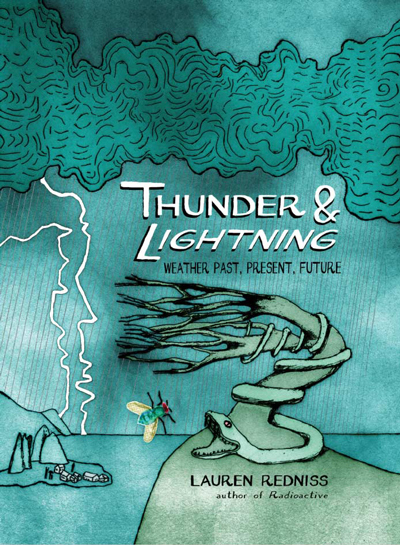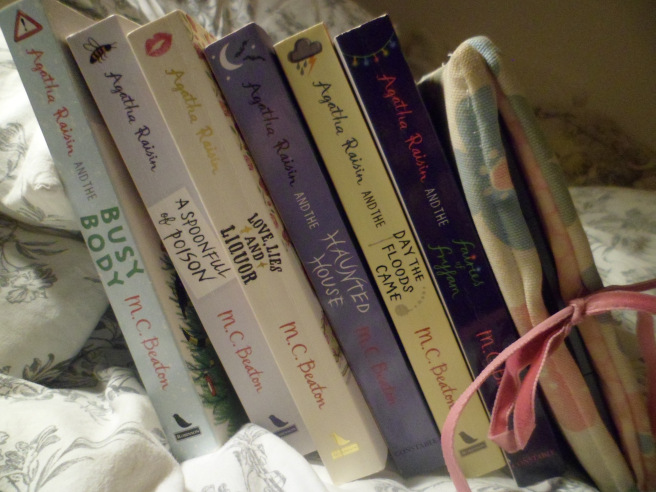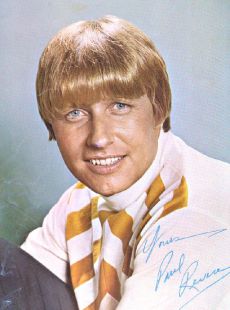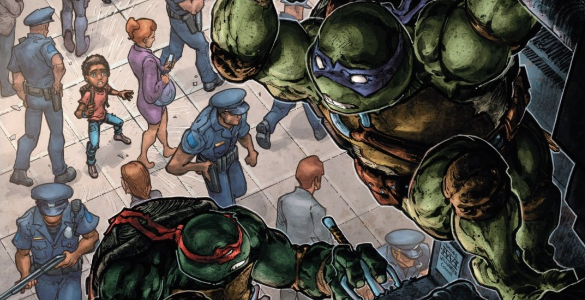Avi Roque (pronouns: they/them/theirs) is a theater artist I’ve admired for their energy, generosity, and thoughtfulness since I began working in Chicago. Most often involved in productions as a performer (Men on Boats, The Crucible), they have taken on the role of assistant director for TimeLine’s upcoming Boy. It focuses on the story of Adam, who, while assigned male at birth, is raised to believe he is a girl, and then transitions back to his assigned gender as a teenager. This play by Anna Ziegler is historically controversial as it centers a transition and a major reorganizing of an identity, yet is at the same time is not a transgender play. I was really curious as to Avi’s relationship with this piece, why they took it on, and how the hat of assistant director is treating them.
Here is a description of the play paraphrased from materials given to the production staff: After a medical accident in infancy, Adam’s parents consulted doctors and ultimately decided to raise him as a girl. This is a fictionalized account of the story of David Reimer who was born in 1965 and transitioned back to male at age 14. The present day portions of the play are set in the late 80’s when he was in his early 20’s. The doctor is based on Dr. John Money, who is one of the most influential gender researchers of all time.
Dani: Tell me a little bit about this project.
Avi: To make it very clear, it is not a transgender story or an intersex story. These (Avi produces a packet from TimeLine) are talking points that they gave to us and I think it’s very useful. This is what is says: “Because the title character is neither transgender or intersex, Boy is not a trans play or an intersex play. However, it does have many themes relevant to the trans or intersex communities. It is very much about growing up in an identity that doesn’t fit you.” So that is why they asked what adjacent narrative – or who can bring authenticity to this story.
I feel like this is very new for Timeline, so I’ve heard. But it is being used I think to start having conversations within the company and with their audience to introduce this talk about gender identity and expression. So it’s a vehicle for that. I guess everybody has their way of asking how we start these conversations, and this has posed as a solution for Timeline, anyways.
Let’s see what else. They want to really drive that it is a love story. “You should resist the temptation to describe this play as a play about the main character ‘finding himself,’ ‘figuring out who he is,’ etc. Adam knows who he is. He has figured it out years ago and is settled in his identity. He is just finding love now.”
Well, you’ve already touched on a lot of the things I’ve been wondering about this project. I’ll start with this. I’ve seen this play described online in a lot of ways over the course of its history, most of them very careless and inaccurate. The way in which TimeLine is choosing to present the play is really clear. Can you talk about the things they are doing to help the play match that description you read?
I auditioned for the role [of Adam] and I remember saying, when they asked what I thought about it, I said – and I feel this way all the time about things right now – “Ya’ll have to be responsible in your storytelling. Take responsibility. It can’t just be willy-nilly here. You can’t just be like, ‘Look we have trans artists in the room!’ Well what does that look like? What steps are you taking to create an environment that is supportive and safe?” I’m still disappointed in the lack of progress that exists, especially in theater communities and artistic communities.
So we have Josie Kearns, our dramaturg and also the “Gender Consultant.” So she is trans and is amazing and has been very very helpful as a resource for this play. We did a Gender 101 class and it essentially was (reads) “For The Cis Folks Working on a Gender Diverse Team.”
Wait that is so honest, I like that!
Yeah! And I really appreciated that. So I will say, I have had no issues with feeling weird or out of sorts. I’ve been in those spaces where I don’t know what is going to happen and I feel on edge. If I don’t feel relaxed there are blocks to do the work I want to do. So I really liked this. Lurie Children’s, a hospital, has their Gender and Sexuality division, and they are the ones that came in and hosted this “Gender 101.” It was so good. Even I was like, “This is really helpful! Thank you!”
In that vein, TimeLine is very open about this play being an educational tool. They say in their promotional materials that they want to welcome people into this dialogue about identity in a way that is funny and embracing,
-and touching and empathetic,-
-and not confrontational. And I think that some folks take issue with that work as being for certain audience members and not others. I’m wondering, as a person on the production, what do you think the value is in creating something that is explicitly about bringing people up to speed?
I’m still a little nervous about how this is going to be perceived, because the last thing I want is for an audience member to say, “I get it now!” because this play is very binary. In taking these little steps? Fine. But why can’t we dive in and look at the plethora of things that exist within this conversation rather than isolating it? But I think it is important. It’s of course important to try to find ways to invite people to a conversation that they might not necessarily find themselves in on their own. I’m finding myself actually starting to forget about that and I’m trying to immerse myself into the storytelling.
So, what do you think this play is about?
It is Adam’s story, and I do agree and believe that Adam knows who he is. But what happens when you start embarking on these intimate relationships, how do you relate to another person when, perhaps, you do have trauma? It’s the journey of discovering more than just yourself. I relate as a trans person to this idea of shedding, but accepting and forgiving, and needing to do that work in order to invite another person into your life that you care about. So I do see it as a love story. I do agree with that element 100%.
What does your role as an assistant director look like in this show?
Right off the bat the director, Damon Kiely, invited me into conversation. He wanted to meet with me, he wanted to talk with me, he wanted me to read the play and he wanted to have me share my notes and thoughts. And made it a point to say that my voice is welcome in the space, and not to feel like I have to keep quiet and not say anything.
That’s a huge deal. A lot of assistant directing can be just listening and being an active observer.
Well, I sometimes get in my own way because I don’t want to say something that’s going to lead us astray or interfere with his vision. I don’t want to say something that’s not constructive.
I imagine, since you’re mostly a performer, it takes some time to recalibrate, and figure out what an AD is supposed to say as opposed to an actor?
Exactly. So sometimes I just say, “Yes, Damon that’s good.” I don’t know if me affirming is helpful but I certainly don’t have anything to disagree with him about. It’s been good but also challenging at the same time because it’s hard to sit! It’s hard to sit for extended periods of time!
I so understand this! You mentioned to me a while ago that you felt you had to say yes to Boy because of your overall project. What does that look like and how does this fit in?
In the moment I was asked to do this project, I was feeling very hungry to make sure that I was a part of projects like this. I felt that, in a brief moment last year, people were looking to me for any kind of insight or enlightenment about things.
Honestly, I noticed that too.
I hope that whatever I was able to contribute in that moment was useful, but it also deterred from the work I’m still doing on myself. So I felt like I wasn’t ready to be in that “spotlight,” per say, but I also have a desire and a hunger to do that. I guess when I can be in a room, when I can offer anything, I will probably say yes. But sometimes that’s me forcing myself to say yes because it means a lot to me and is important to me, and I want people to get it right.
Well, this is something I’ve been really wanting to talk with you about. People have been making moves to “hire inclusively,” which is great. But at the same time, that needs to be done in a way that is supporting the diversity of perspectives being welcomed into the space. How do you think institutions can do this, because it is in many cases, a new thing for these older theaters.
Well, I think it really changes if I said – well, look I want to start developing a solo show, which is real.
That’s true?
It’s true!
I was actually wondering when you were going to do that…
Stop!
I honestly can’t wait. Give me the date and time, and I will be there.
Well I’m thinking about, if I want to curate a team and I want to invite artists and creators to collaborate, then what does that look like? But again, it’s different because of who I am. And I think it changes how we look at that. And I think it does feel, as a person of color, icky when these predominantly cis white spaces are making these decisions. I battle sometimes because I’m super grateful, for instance, to work at Steppenwolf, because I am an actor and I want to work at these levels and at this caliber, because that’s where I deserve to be. It’s tough because I want to make sure I’m there because I have the skill and the talent, but I also can’t help but think that it helps because I am brown and have a gender identity that’s not “the norm.” So for those instances, how can those folks do this a little bit better? The conversations that need to be happening in these rooms aren’t happening, which is why I really appreciate this kind of “Gender 101” thing. I told TimeLine after that event, “This is great, thank you so much for doing this, and I really hope that these are practices you continue to enact. That this is not just something you did because this is a play you are doing and you have trans artists in the room.”
And that the onus wasn’t on me to educate. That would be the absolute incorrect way to go about it. I always make that clear whenever people want to chat with me that I’m happy to meet with then, but if my involvement goes beyond an initial chat then I have to be compensated for what I’m offering. It’s essentially a consultant. Know that it’s not for free. I was doing that for a while. Podcast interviews, and other things. It mattered to me that my voice was heard. It’s crucial to me. Representation does matter. One thing I did learn from Steppenwolf was that for these young people that came into that theater space and saw The Crucible, that in fact me as an individual actually affected people. And it meant something to them and inspired them. I only know that because I have Twitter. Some of the students found me on Twitter and commented on…I gotta show you…
Those student shows must be really unique and rewarding-
-and scary. They’re intimidating because young people are so honest and real and I love that.
Ok here it is: “went to see The Crucible at Steppenwolf and @ok_roque is inspiring. hit me with minority LGBT+ success” and someone replied, “they Latinx too yaaaas b!”
Like, oh wow!
Are there companies doing good work in terms of embracing a diversity of perspectives?
Of course. Honestly, my go to is American Theater Company. Will Davis and everybody there. Men on Boats was the first time in Chicago that I felt free to exist and to do my work. I was thrilled, I felt passionate, I felt supported – even working with Melissa Ng in the costuming – that was the first time I felt like I was having these conversations about my body in relation to the clothes that this character needs to wear in this play, but I’m wearing them, so what do I need? What feels good? But I will say this, at Steppenwolf in my costume fitting I was talking about what I needed and I mentioned I was wearing a binder, and they said, “Great. What kind?” And I told them and they said, “Great, we’ll order that for you. And oh, by the way, what are you pronouns?” I was like cool, cool, okay! In the clothing I was wearing I felt great, whereas the other “girls” in the show had to wear dresses and tights, and I didn’t have to, and that was ok. So that felt really great.
This is all really important. But ultimately, you’re an actor and an artist. What is exciting to you artistically right now? While we happen to be talking about this issue right now, your work is not at all bound to it.
I will say there is something about directing that I kind of….but he only time I ever did that was in college for my thesis where I decided to create “an original piece of physical theater.”
Hah. Same.
Right? It is the only way to express yourself. Anyway, it was called “Mirrors & Parallels – My Life and Harvey Milk’s.” Sad that the person I latched on to was a white cis gay man, but it was the only person or resource or figure I felt had a similar life of what I was experiencing because at first I was very much exploring my queer identity and my sexuality. The gender thing got very much swept under the rug. (mimes tiny broom and tiny rug and whispers, lovingly) “I’ll save you for later.” Anyway, the piece was about this journey of my life, and very much landing in a place of, “I know who I am and I love myself.” Now, I feel like I’ve gone through more waves, and even though, like you said, there is more depth and scope to my work, I think that is something that is really taking precedent right now.
I don’t want to be unoriginal and do a solo show about my life. But my life is my life and it’s not everyone else’s life. And if there’s anything I’ve learned it’s that there is a necessity for people of marginalized or oppressed communities to keep sharing their stories, and that more than one person can tell a similar story. And I’m not just trans, I’m Latinx. And I want to explore those things. I feel like I am always working doubly as hard. So I want to do a solo show, and I want to keep getting hired to do roles, but I think what roles I want to do are shifting and changing. I want to do more male-identified roles. Jake in We’re Gonna Be Okay at American Theater Company is my next role. Will Davis has been the person who has given me these roles that I never thought I would do because either I wasn’t ready or didn’t think people saw me in that light.
I’m still in my own transition with myself. Sometimes I just want to live and exist and do these things without there having to be a conversation around it, because often times I’m a new foreign object in the space. I just want to show up and everything is great already. That’s an ideal situation. I would love for there to be a day when I don’t have anxiety in spaces. Where I’m not in protection mode, even though I know people have good intentions, even though I know people are trying. This work is exhausting. I just want to keep creating, and doing and being me.
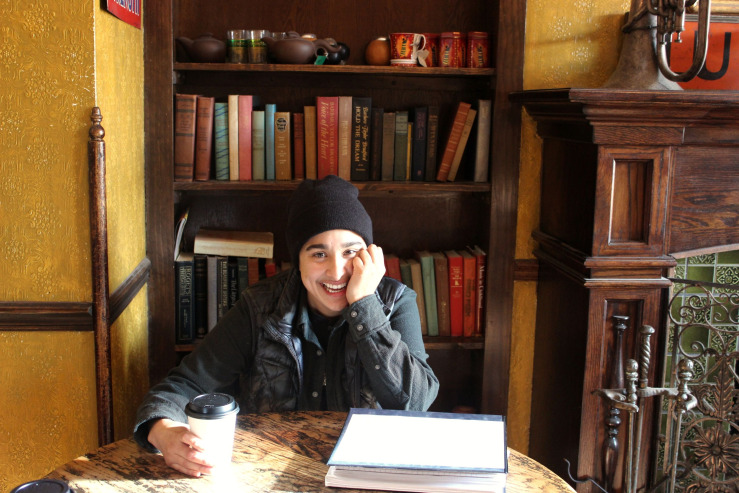
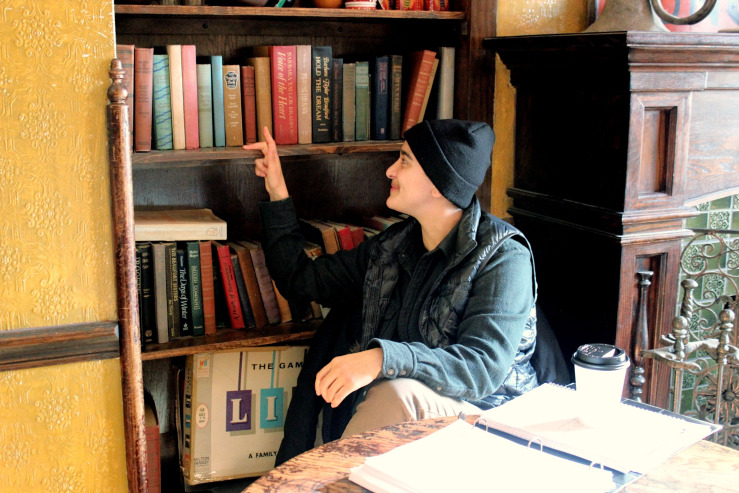
Avi peruses their personal library. Just kidding, we’re theater artists, this is a coffee shop.
Avi Roque (Gender Pronouns: They/Them/Theirs), a San Francisco, CA native, received their B.A. in Theatre from California State University, Fullerton, and moved to Chicago to nurture their artistic spirit. Avi is proud to say that they are a multi-disciplinary artist and a Latinx Trans/Non-Binary individual. They strive to pursue works exploring transformation and discovery of self by devising new works and simultaneously breathing life into the words of others. Avi is an active participant in the Chicago Theatre scene and their most recent credits include: MEN ON BOATS (American Theater Company) and THE CRUCIBLE (Steppenwolf For Young Adults). They recently worked with Damon Kiely as the Assistant Director for BOY (TimeLine Theatre Company) and is looking forward to returning to American Theater Company and working on the Chicago Premiere of WE’RE GONNA BE OKAY. Avi is a company member with Collaboraction, First Floor Theater, and Pride Films & Plays and is represented by Gray Talent Group. You can learn more about them & their whereabouts at aviroque.com.
Advertisements Share this:
